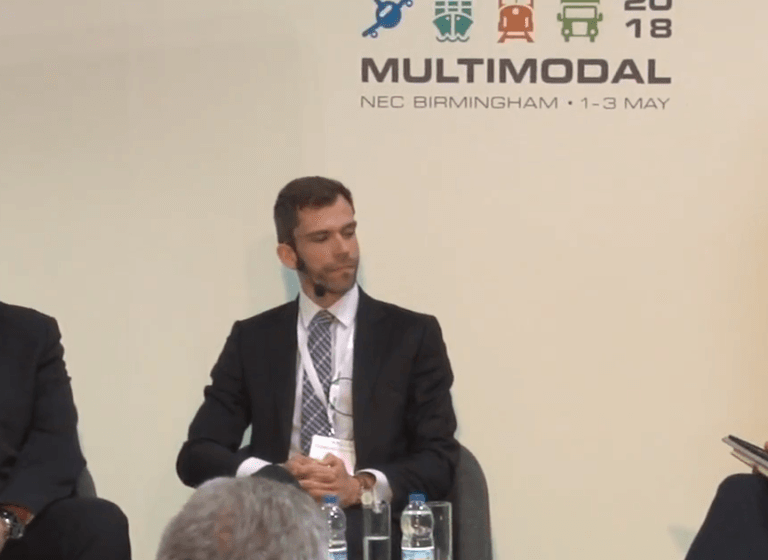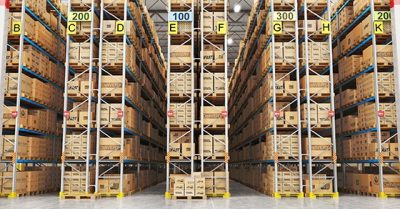
Pierre Liguori was invited to speak about “Patterns of Global Trade” at UKWA seminar during Multimodal in Birmingham on May 1st, 2018.
Peter Ward, CEO, UKWA introduced the workshop with a summary of the last 12 months economic and geo-political events in the world that had a significant impact on global trade and will likely continue to influence businesses in the coming months.
Oliver Kolodseike, Senior Property Economist at Colliers International, described then in more detail how such events influence the global and UK economic climate taking into account inflation growth, global trade flows acceleration, Brexit, China and India specific economic situation, etc…
Pierre Liguori described the main patterns for warehousing in the wake of Industry 4.0. Industry 4.0. is usually described as the next supply chain revolution, aiming to better connect innovation, technologies and humans.
The real disruptive factor is e-commerce supported by technology and real-time data: because consumers are shopping online 24/7, the challenge is to be able to properly anticipate demand. It becomes even more difficult to predict the consumer behaviour. In addition, shorter product life cycles increase the complexity of supply chain planning. And because consumers expect next day – or even same day – deliveries, the challenge is to bring inventories closer to customers and to optimise warehousing and transport capacities.
Another key disruptive factor is real-time data: real-time analysis means the ability for manufacturers and retailers to challenge their supply chains real time by reassessing real-time transport and warehouse capacities, by continuously changing priorities and by redesigning supply chain networks in a continuous improvement mode.
There is therefore a strong expectation for flexible warehousing models and the trend is to switch from a traditional central distribution centre model to more decentralised and connected footprints. To a certain extent it can be considered as “no warehouse” or WAAS (Warehouse as a Service) concept:
- Major fulfillment centres will continue to manage inbound flows from overseas. These warehouses are highly automated to handle significant volumes.
- Last mile delivery warehouses, closer to customers. These warehouses are smaller, well located and interconnected with an international network of collaborative warehouses offering shorter and temporary warehousing agreements, easy to implement with standardised “plug and play” methodologies, end-to-end real-time visibility and transparency.
This “no warehouse” or WAAS concept will require more transparency and will become more collaborative, which could be a challenge for traditional logistics service providers (LSPs). However, there are major opportunities for the ones who are ready to embrace this trend in the warehousing industry. Several Tokema LSPs customers have already involved Tokema warehouse consultants to support their logistics digital transformation.
Contact us to discuss your next project!


